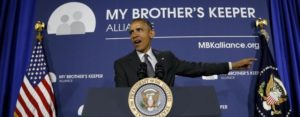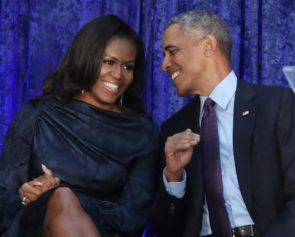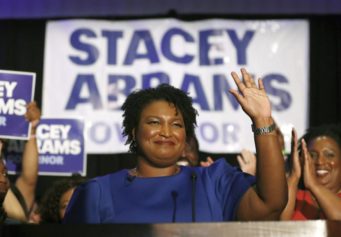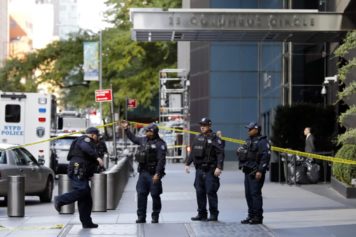
But as the president publicly denounces inequality and swears to continue to advocate for the Black community even outside of the White House, it’s hard to ignore that same community’s stunning lack of progress under his presidency.
Nobody can deny the president’s own racial identity is a part of what helped him obtain an overflow of support when he kicked off his first presidential bid roughly eight years ago.
Since then, however, it seems like the Black community’s hope dwindled along with their economic status and educational opportunities.
Despite what many consider to be a presidency full of missteps regarding the president’s impact on the Black community, he has suddenly emerged with a bolder voice on racial issues following the nationally covered aftermath of the recent deaths of unarmed Black men like Trayvon Martin, Michael Brown, Walter Scott and Freddie Gray.
He backed up his seemingly newfound voice on racial issues with the announcement of the My Brother’s Keeper nonprofit organization that stems off of his White House initiative of the same name.
The organization will focus on mentoring young Black and Latino men from disadvantaged backgrounds in hopes that it can open doors for them that were previously shut due to racial disparities in America.
NBC News reports, “The alliance is designed to enlist the private sector in helping address the academic achievement gap between minority boys and their peers as well as the school-to-prison pipeline in which young black and Latino boys are disproportionately expelled and given harsher sentences as juveniles.”
The president made the announcement at the Lehman College campus in the Bronx, N.Y., where he also held a private meeting with some of the students who fit the profile of the type of men the program would hope to help.
During that meeting, the president said he garnered a new perspective of the young men who needed his help and was eager to tackle some of the same challenges that he faced when he was growing up.
“Malachi, he just talked about—we should talk about love,” Obama said of one of the young men as he veered away from the statements that had been prepared for him. “Because Malachi and I share the fact that our dad wasn’t around and that sometimes we wondered why he wasn’t around and what had happened. But really, that’s what this comes down to is: Do we love these kids?”
The president delivered his own response to the question with his new nonprofit that will allow him to carry on a mission to give disadvantaged men of color a new lease on life and a better sense of control over their futures.
It’s a mission he says will be a part of his personal battle even as he bids the White House farewell.
“This will remain a mission for me and for Michelle not just for the rest of my presidency but for the rest of my life,” he said, according to The New York Times. “And the reason is simple. We see ourselves in these young men. I grew up without a dad. I grew up lost sometimes adrift, not having a sense of a clear path. The only difference between me and a lot of other young men in this neighborhood and all across the country is that I grew up in an environment that was a little more forgiving.”
The nonprofit has already attracted major financial backing from major companies including American Express, Deloitte, Discovery Communications and News Corporation.
Companies on the leadership board include PepsiCo, BET, Sprint and Prudential Group Insurance along with influential leaders like soulful crooner John Legend, Democratic New Jersey Senator Cory Booker, former Secretary of State Colin L. Powell, former Attorney General Eric H. Holder Jr. and a collection of retired athletes including Shaquille O’Neal and Jerome Bettis.
The nonprofit itself is an effort that has already been met with praise and open arms but it hasn’t helped anyone forget the way the landscape changed for the Black community under Obama’s two terms.
Despite a platform built on change, the Black community’s situation failed to shift much and in many ways, conditions have actually deteriorated, reports suggest.
Unemployment in the Black community has jumped up to 16 percent, up 6 percentage points from the rate under George W. Bush’s presidency.
The percentage of Black people living in poverty has climbed to 27 percent, up 2 percentage points since 2007.
The racial wealth gap is now at a 24-year high, according to a study by the PEW Research Center.
So while My Brother’s Keeper is a program with great potential and purpose, some still can’t help but wonder where such concern for the Black community was when it came to the president’s polices.
It’s a valid concern but also one that needs to be balanced, according to some prominent Black leaders who were quick to note that the president was also faced with a congress that seemed to bar his every move.
“The efforts to deal with the unemployment problem in urban communities have been absolutely blocked by conservative interest in the United State’s Congress,” the president and CEO of the National Urban League, Marc Morial, told Atlanta Blackstar back in March following the release of the State of Black America report. “They blocked the president’s American Jobs Act. They blocked increases in minimum wage. They passed no meaningful economic legislation, and they’re not willing to take up any meaningful economic legislation.”
It’s a pattern that seemed to be underscored with the massive delay in confirming Loretta Lynch as the new attorney general, making her the first Black woman to hold that position.
Of course, over the span of eight years there were “missed opportunities” as Morial added, but the nature of the entire political system must be considered as well as a variety of other external factors when discussing the current state of the Black community.
Attempting to track the economic regression of the Black community to the current president, as has been done so often even before Obama took office, is a one-dimensional view that will hardly lead to any solutions to the plethora of issues that need to be addressed.
One can only hope that the president will more passionately fight to address such issues when he no longer has to navigate the confines of America’s crumbling political landscape.


